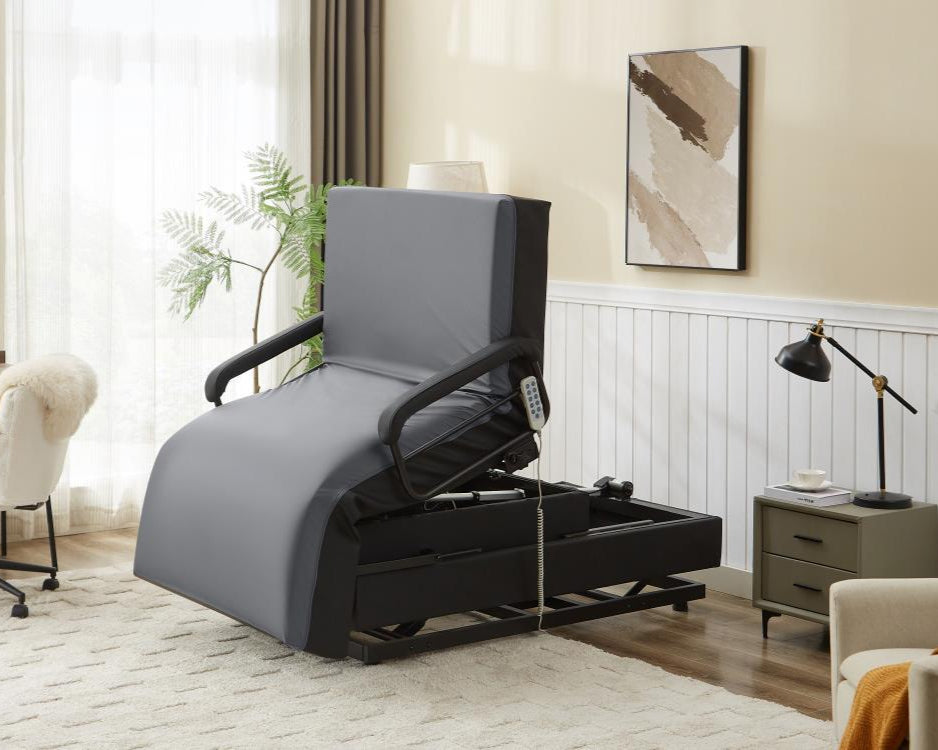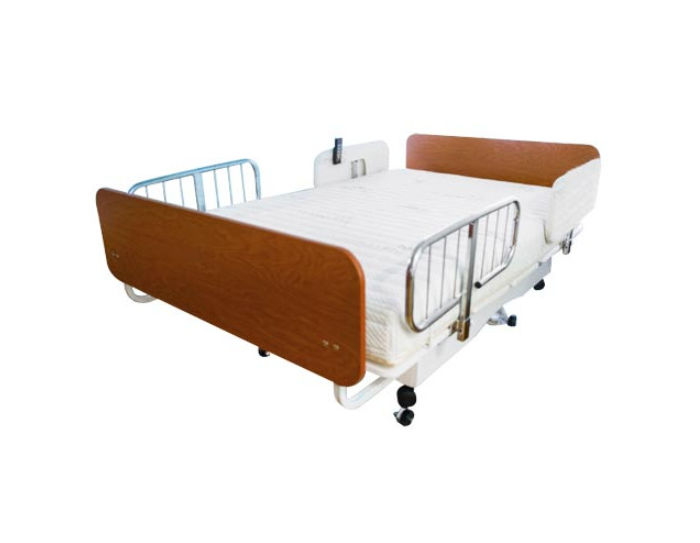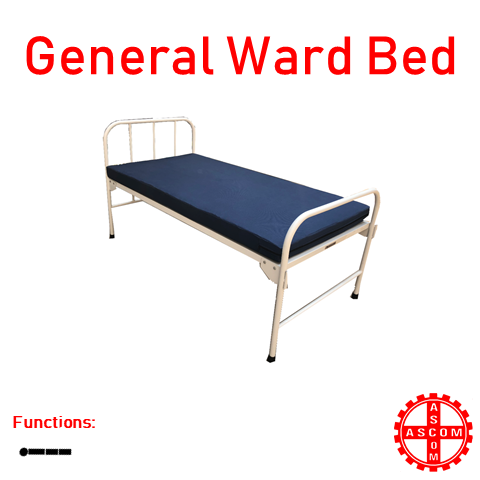The Ultimate Guide To Hospital Beds For Home Use
The Ultimate Guide To Hospital Beds For Home Use
Blog Article
An Unbiased View of Hospital Beds For Home Use
Table of Contents8 Simple Techniques For Hospital Beds For Home UseAll About Hospital Beds For Home UseThe Single Strategy To Use For Hospital Beds For Home UseIndicators on Hospital Beds For Home Use You Should KnowThe smart Trick of Hospital Beds For Home Use That Nobody is DiscussingAll about Hospital Beds For Home Use10 Simple Techniques For Hospital Beds For Home Use
There are 3 main types of health center beds: manual, semi-electric, and fully-electric. These beds utilize hand cranks to change the bed's elevation and elevate and decrease the head and the foot.
Semi-electric beds have an electrical motor to increase and reduce the head and foot sections of the bed (hospital beds for home use). Full-electric beds have an electrical motor that can raise the head and foot sections of the bed as well as the whole elevation and positioning of the bed.
Getting My Hospital Beds For Home Use To Work
Some models can also move right into even more placements, such as the Trendelenburg (tilt) setting. There are several sorts of medical facility beds, each designed to fulfill particular patient demands. Right here are some common kinds: This is the most usual kind of hospital bed, created for general clinical use. It has a handbook or electrically adjustable headrest, foot rest, and height.
Reduced to the ground than a conventional bed. This kind of bed is made for larger clients, with a broader structure and greater weight capacity than a conventional bed.
This sort of bed is made for critically ill clients that need open surveillance and specialized clinical tools such as ventilators and mixture pumps. This sort of bed is designed for use during labor and delivery, with adjustable positions and features to support the mother and baby during the birth process.
Hospital Beds For Home Use for Beginners
Several function and the devices do broadening traction to various components of the vertebra and the extremities without moving the body. These are simply a few instances of the kinds of healthcare facility beds offered. The particular sort of bed made use of will depend on the patient's problem, medical needs, and various other aspects.
Right here is the important things you require to understand. A one-function hospital bed is a clinical bed that allows a patient to relocate only the head or foot area up or down. A 2 function health center bed commonly refers to a kind of medical bed that has 2 adjustable functions to assist patients in health centers or care centers.

The Only Guide to Hospital Beds For Home Use
A 7-function ICU bed is a sort of medical bed that offers several flexible features to support critically ill clients in an intensive care system (ICU) (hospital beds for home use). The seven functions commonly consist of: Back-rest change: The back-rest can be readjusted to numerous angles to aid the patient sit up or lie down conveniently
Height modification: The bed can be increased or reduced to make it much easier for individuals to enter and out of bed, and for caretakers to provide care. Trendelenburg position: The whole bed can be slanted to promote blood flow and circulation in the body. Reverse Trendelenburg position: The bed can additionally be slanted in the opposite direction to advertise blood circulation and flow in the top body.
While even more economical than electric versions, these beds need exertion for adjustments. The major advantages of hand-operated beds are their affordability and dependability, as they do not depend on power. The need for hand-operated effort can be a constraint in circumstances where fast modifications are necessary or where caretakers face physical obstacles.
The 8-Minute Rule for Hospital Beds For Home Use
Semi-electric healthcare facility beds use an equilibrium of guidebook and electrical controls. These beds give an ideal middle ground in between guidebook and totally electrical alternatives, supplying you could try here convenience of usage without the complete expense of electric designs.
Semi-electric beds are appropriate for individuals who require modest changes to the head and foot areas however can manage without frequent elevation modifications. This makes them an economical solution for those looking for comfort and ease without the requirement for continuous repositioning. Fully electrical hospital beds include electric controls for smooth changes to the height, head, and foot areas.
Specialized healthcare facility beds, such as ICU beds, long-term care beds, and bariatric beds, are thoroughly made to attend to particular clinical needs. These beds offer customized care for varied individual groups, enhancing both end results and comfort. In the complying with areas, we will certainly discover the primary sorts of specialized hospital beds, detailing their certain benefits and applications.
With years of experience in making electrical direct actuators - hospital beds for home use and close partnership with the healthcare sector, TiMOTION is well-positioned to offer reputable healthcare solutions. Our vertically incorporated company takes care of every action of the production process, from layout to actuator setting up, ensuring we deliver phenomenal worth and personalized options customized to your particular requirements
The Basic Principles Of Hospital Beds For Home Use

To discover even more about incorporating these innovations right into your products, call us today. Further analysis:.
Information is sourced from the Medicare Cost Record.

The Best Strategy To Use For Hospital Beds For Home Use
A healthcare facility bed is a bed created particularly for medical purposes. It is not just an area for individuals to rest, but also a system for clinical operations. visit this site Unlike regular home website here beds, medical facility beds generally have flexible attributes, which can facilitate clinical personnel to make various adjustments according to the demands of individuals, such as transforming the height, inclination, and assistance angle of the back and legs of the bed.
Report this page